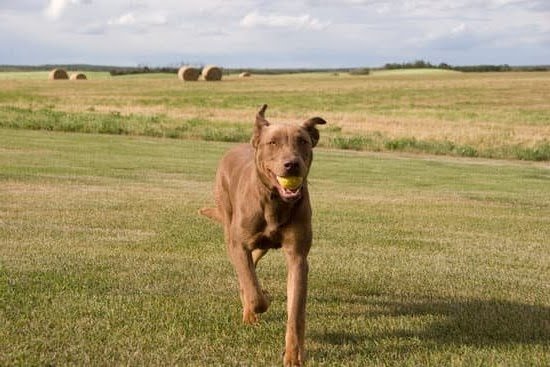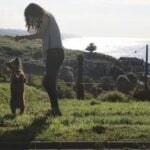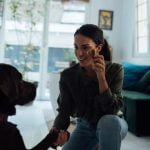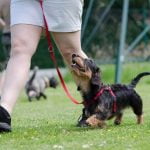What Are The Hardest Dogs To Potty Train
There are a lot of different variables to consider when trying to determine which dogs are the hardest to potty train. Some factors that may contribute to how difficult a dog is to housebreak include age, breed, temperament, and prior potty training experience.
One of the most challenging breeds to potty train is the Samoyed. These dogs are bred as working dogs in Arctic climates and are not typically thought of as house pets. They are bred for their intelligence, strength, and endurance, but unfortunately, they can also be quite difficult to potty train.
Another breed that is notoriously difficult to housebreak is the American Pit Bull Terrier. These dogs are known for their high energy levels and stubbornness, which can make potty training a real challenge. They are also prone to developing bad habits if not properly potty trained, such as chewing and digging.
Finally, the youngest dogs are often the hardest to potty train. This is because they are still learning where to go and have not yet developed the muscle control necessary to hold their urine and feces for extended periods of time. If you are considering bringing a puppy into your home, be prepared for a lot of work when it comes to potty training.
However, with patience and consistency, any dog can be successfully potty trained. It may just take a little more time and effort than with some other breeds.
How To Potty Train Difficult Dog
Many people find potty training a difficult dog to be a daunting task. However, with patience and perseverance, it can be done. The first step is to determine why your dog is having difficulty. There are many reasons why a dog may have difficulty potty training. Some common reasons are that the dog is not house-trained, is fearful of going outside, has a medical condition that affects its ability to control its bladder or bowels, or has been punished for going to the bathroom in the wrong place.
Once you have determined the reason for your dog’s difficulty, you can begin to address the problem. If your dog is not house-trained, you will need to start from the beginning, teaching it where to go potty and how to signal that it needs to go. If your dog is fearful of going outside, you will need to gradually introduce it to the outdoors, starting with short, easy walks and gradually increasing the distance. If your dog has a medical condition, you will need to work with your veterinarian to develop a treatment plan. If your dog has been punished for going to the bathroom in the wrong place, you will need to stop punishing it and start rewarding it for going to the bathroom in the right place.
The most important thing to remember when potty training a difficult dog is to be patient and consistent. Dogs learn best through repetition and positive reinforcement. If you are patient and consistent, your dog will eventually learn to potty train correctly.
How To Potty Train Your Dog Akg.Org
Potty training your dog can seem daunting, but with a little patience and these simple steps, you can have your pup trained in no time!
1. Start with a small space. When you first start potty training, confine your dog to a small, easily cleanable space like a bathroom or laundry room. This will help you keep an eye on them and make it easier to clean up any accidents.
2. Establish a routine. Dogs are creatures of habit, so it’s important to establish a routine for potty training. Take your dog out at the same time every day and always bring them to the same spot.
3. Reward success. When your dog successfully eliminates outdoors, be sure to praise them and give them a treat. This will help them associate good things with going to the bathroom outside.
4. Be consistent. One of the most important things when potty training a dog is being consistent. If you let them get away with peeing in the house one day, they’re going to be much harder to train the next.
5. Be patient. It may take a little time for your dog to get the hang of things, so be patient and keep at it. With a little patience and consistency, you’ll have your pup potty trained in no time!
How To Train Dog To Use Potty Pads
Potty pads are an excellent way to housebreak your dog. They provide a designated area for your dog to relieve himself, which helps to speed up the housebreaking process.
There are a few things you can do to help your dog get used to using potty pads:
1. Start by placing the potty pad in a spot where your dog spends a lot of time, such as near his bed or food bowl.
2. Make sure the potty pad is always available to your dog. He should be able to access it whenever he needs to go.
3. Reward your dog each time he uses the potty pad. Positive reinforcement is key when housebreaking a dog.
4. If your dog has an accident outside of the potty pad, do not punish him. Simply clean up the mess and continue to reinforce him when he uses the potty pad correctly.
It may take a little bit of time, but with patience and persistence, your dog will learn to use the potty pad like a pro.
How To Potty Train A Dog Without Pads
Potty training a dog without pads can be a bit of a challenge, but it’s not impossible. Here are a few tips to help you get started.
1. Start by taking your dog outside every time he needs to go potty. This may take a little bit of time to get used to, but it will be worth it in the end.
2. If your dog is having a hard time adjusting to going outside, start by training him in a small area like your backyard or a fenced-in park. As he gets better at going potty outside, gradually expand the area he is allowed to roam.
3. Reward your dog every time he goes potty in the right spot. This may include treats, praises, or even a game of fetch.
4. Be patient and consistent with your training. It may take a little bit of time, but your dog will eventually learn how to potty outside.

Welcome to the blog! I am a professional dog trainer and have been working with dogs for many years. In this blog, I will be discussing various topics related to dog training, including tips, tricks, and advice. I hope you find this information helpful and informative. Thanks for reading!





